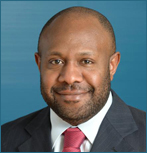The CEO of Papua New Guinea’s largest superannuation fund expects 2016/17 to be another year of low growth, with a pickup from 2018 onwards. Nambawan Super’s Garry Tunstall also tells Business Advantage PNG he expects the fund will slightly increase its international investments this year.

Nambawan Super’s Garry Tunstall
Low growth in Papua New Guinea during 2015 saw Nambawan Super’s (NSL) profit fall from K338 million in 2014 to K280 million, although it was, according to fund Chairman Anthony Smare, a ‘solid’ result.
The fund allocated 5.8 per cent to members’ accounts, down from seven per cent in 2014.
‘Looking ahead, NSL expects 2016 to be another year of low growth.’
The fall of K58 million on 2014 has seen the company set aside two per cent of the latest profit result ‘to mitigate against the expected continued economic challenges that the local and global economy will face in 2016,’ declared Smare in the annual report.
Factors
There were a number of positive factors leading to that result, Chief Executive Officer Garry Tunstall tells Business Advantage PNG.
‘(The positive factors) were dividend and interest income, property rental receipts, and foreign currency gains from the valuation of international investment,’ he says.
‘Confidence is infectious. With APEC delivering considerable cash into the economy, the push towards the new LNG project, as well as growth in Ok Tedi operations and its revitalisation, (it can be expected that) the country will see a considerable lift in fortunes.’
‘The negative factors were lower valuations for global and domestic equities and properties.’
Outlook
‘Looking ahead, NSL expects 2016/17 to be another year of low growth,’ he says.
‘Investing is not a guarantee of positive return. Returns reflect the underlying economic situation, investment sentiment, risk, pricing and a range of other factors—both local and globally.
‘Offshore investments not only give us a wider range of possible investments, but also more liquid investments that, if necessary, can be sold quickly should we choose to do so.’
‘In general, the direction of global growth is the major issue in 2016.
‘We think 2016/17 will be challenging, but from 2018 onwards we expect a pickup. Thus, returns look more positive over the medium term, as opposed to the immediate short term.
‘Confidence is infectious. With APEC delivering considerable cash into the economy, the push towards the new LNG project, as well as growth in Ok Tedi operations and its revitalisation, (it can be expected that) the country will see a considerable lift in fortunes,’ he says.
‘There are a number of building projects and hotels coming on stream—and the infrastructural development will continue.
‘Of course, an uplift in commodity prices may also be a telling factor, and, whilst we cannot be certain, it is our belief we will see some slight improvement.’
Investment strategy

Nambawan Super’s Chairman, Anthony Smare
Nambawan Super’s current investment strategy includes using large international fund managers to invest in global equities, particularly those listed on major stock exchanges and which are therefore readily saleable (liquid).
‘Offshore investments not only give us a wider range of possible investments, but also more liquid investments that, if necessary, can be sold quickly should we choose to do so,’ says Tunstall.
‘The Trustee Board is due to consider long term investment strategy in the first quarter of 2016, and, other things being equal, we expect to invest more overseas this year to safeguard members’ interests,’ he says.
Assets
Currently, Nambawan Super owns in excess of 31 properties in Papua New Guinea, of which several are subject to offer and are under settlement process.
‘NSL is looking to slightly increase investment in global markets and comparably reduce local investment.’
Of the remaining properties, 12 are small in size and have been identified as ‘non core’ to the future investment plans of the Fund.
‘NSL will continue to be guided by its Investment Strategy and, as and when opportunities arise in this weaker market, NSL will try to capture value when appropriate and prudent for the fund,’ says Tunstall.
‘In order to fulfil our requirements of liquidity and diversity—among others—NSL is looking to slightly increase investment in global markets and comparably reduce local investment, in a careful and measured manner.’








Speak Your Mind